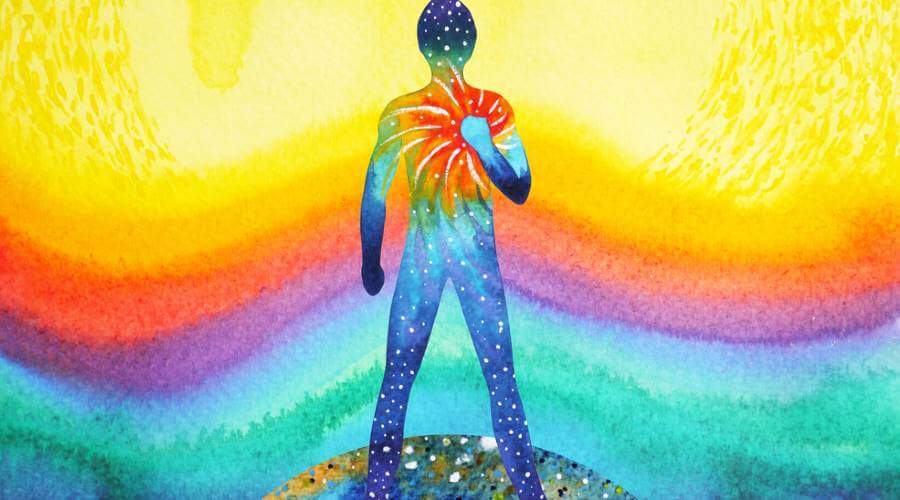The word ‘shaman’ or ‘shamanism’ tends to conjure up thoughts of mystery, healing, power, intrigue, fear and many others. Understanding what is shamanism can be difficult as there is no definitive universal definition. It is a term that is often adapted to match or suit the style of shamanic practice of the practitioner. It is a fluid definition depending on your viewpoint, practice or affiliation. All differences of definition are acceptable, but not definitive or seen as the only way to practice.
What Is Shamanism?
The definition of shamanism that I choose to follow is one that aims to remove dogma, practice affiliation and cultural misappropriation. It aims to focus on the energies behind the practice, without holding onto a controlling or ‘my way or no way’ interpretation. It aims to be inclusive, equal and allows for individual interpretation, expression, initiation and practice. No one is left out or prevented in practising how they choose to practice.
I like to see shamanism as an enduring and endless cycle of initiation (beginning something), realisation and renewal. It requires hard work and deep energetic and spiritual exploration that aims to result in contentment, celebration and harmony. It does not have an endpoint and always focuses on the expression of inspiration as you continue the cycle of spiritual progression. It challenges you to master your inner world and the energies around you. You understand that you are a part of the divine web. You are equal with all, yet are a unique expression with a unique perception of the world around you, leading to unique discoveries.
Shamanic practice works with energies for healing and spiritual development. You connect with the energies around you (spiritual world - often, but limited to, the energies associated with the earth) to gain wisdom, information and healing. When working with energy healing, this is often achieved through, but not limited to, mediation, visualisation, the attunement process or energy healing sessions.
Shamanism And Spirit Guides
Shamanism often places a special focus on spirit guides, power animals etc. I would expand this and include angels and other benevolent beings. As you work with energy healing, you may work with energy beings who are either guides or short term guides in a particular situation or experience. This can be a very creative way of working with energies and exploring different dimensions of energy.
It is important to note that when you communicate with energy beings or guides, that you are not inferior. You acknowledge your power and do not rely on other beings to do work for you or bring about healing unless you are in control of the situation and understand your divine power and abilities. Giving your power away to an energy being is extremely disempowering and may prevent your ability to discover, heal and move forward.
Not all energy beings are benevolent and have your best interest at heart. If a new spirit guide appears, do not instantly assume it is benevolent. It is essential to use discernment before working with any energy being. If you think it is safe to proceed, it is usually best to test the intentions of the guide by allowing a minimal role in the energy healing you are undertaking.
Shamanism And Equality
Unfortunately, many spiritual and energetic practices are not inclusive. Some teach divisive practices that are sexist, racist, misogynistic and homophobic. Equality in shamanic practice is essential. You cant divide the divine. If you attempt to do this by excluding anyone, you are causing spiritual division. This not only harms those excluded but energetically this may result in you experiencing difficult experiences, egotism and learnings until the fully inclusive divine is restored.
Equality also includes other peoples viewpoints. While you do not have to believe or follow someone’s perspective, it is essential to allow it. If the view is illegal or causing harm, you should challenge this; however, it is essential to do this with kindness and love.
If someone’s viewpoint or beliefs are different from yours, do not challenge them unsolicited or aggressively. When you judge someone’s beliefs as wrong and feel the need to let them know, you are in danger of spiritual stagnation and entering egotism. This is not equality and harms your practice and the wider community. It also harms the person who you confront and energetically attack. There are always consequences to such actions that may have a considerable impact on you and your victim. Stay focused on yourself and allow your practice, kindness and actions to be your example.
Cultural Appropriation
There are many different types of shamanic practices, both ancient and new. When working with ancient or traditional practices, it is essential to be mindful of and respectful of beliefs and cultures.
Unfortunately, some organisations take a narcissistic and cult-like approach to culturally appropriated practices. It is essential to examine the teachings of any organisation you have an affiliation. If they take ‘ancient wisdom’ and package it in such a way that they now have the power or have the only way to access such information and teaching, it may be best to avoid. Also, if an organisation says that you can’t practice in a certain way, especially when the teachings are non-inclusive, it may be best to avoid.
Shaman Activation Maintenance Attunement
If you are looking for an attunement that uses the above definition of shamanism you may want to consider the Shaman Activation Maintenance Attunement. This attunement works with the above definition to provide an energetic connection with the energies associated with shamanism with the aim of activating a continues cycle of initiation, celebration and renewal.









